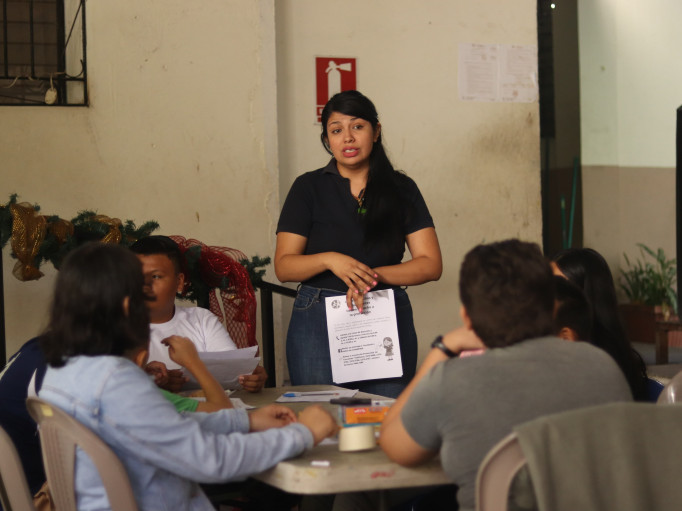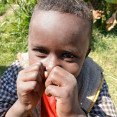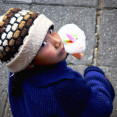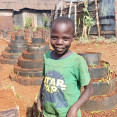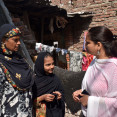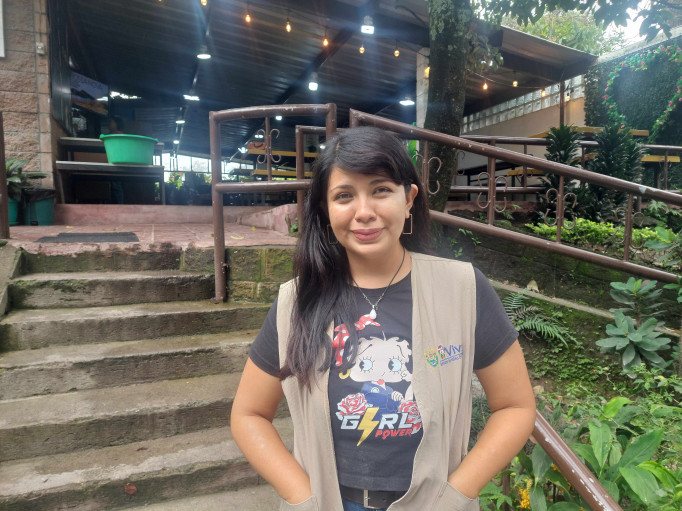
Childhood Educator, Jenniffer, has been been working for Toybox's local partner in El Salvador, Viva, for over 6 years. Her journey with the organisation began during her time at university, when she volunteered giving English classes to children working in the markets. Reflecting on her aspirations she shares; "I have always believed in the importance of making a difference and contributing to making this world a better place for disadvantaged people."
We asked Jenniffer to tell us more about her work with children in street situations in San Salvador.
What does a typical day look like for you?
"I work specifically with children and while I do have some office days, most of my work takes place within communities, schools and markets.
A day might look like this: I arrive at the school by 8am (we currently work with two schools where children who are street or market vendors are enrolled). I prepare the materials for the day and have a brief meeting with the volunteers who assist with the activities with children. At 9am we begin the activities with a prayer of thanks to God. Our days always include games to ensure activities are enjoyable for the children. Our motto is 'learning can be fun'. During the day we focus on areas like mathematics, language, emotions, teamwork and responsibility.
In the afternoon, I facilitate workshops that focus on school reinforcement. (These ‘catch up workshops’ happen in the markets - where children have been working or supporting parents at their stalls.) We always make time to listen to the children — to hear their concerns, doubts, and feelings. We also try to create opportunities for recreation. For example, we recently took the children from the central market to Tin Marin, the children’s museum in our country — many of them had never been before.
Throughout the day, I stay in contact with other colleagues, coordinating our efforts. For instance, right now we are about to launch a toy donation campaign. Our goal is to collect over 200 toys for the boys and girls we work with.
Each day is different at Viva Foundation, for example I recently met with an organisation who will be providing health and nutrition consultations for more than 50 children. I also spoke with teachers about how we can improve security for the children in the school. I'm filled with satisfaction knowing that everything we do, we do to improve the lives of children connected with the street and high social risk. It is work that is worth the time and effort."
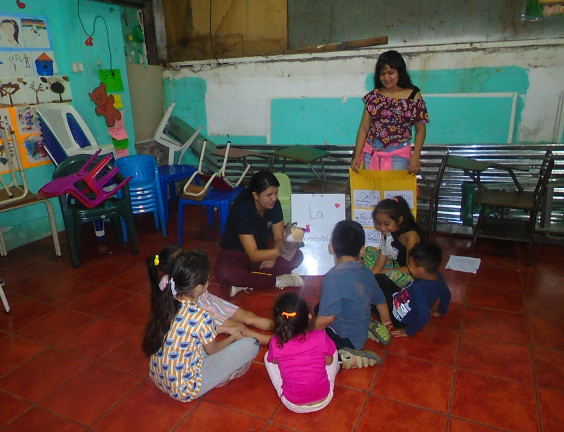
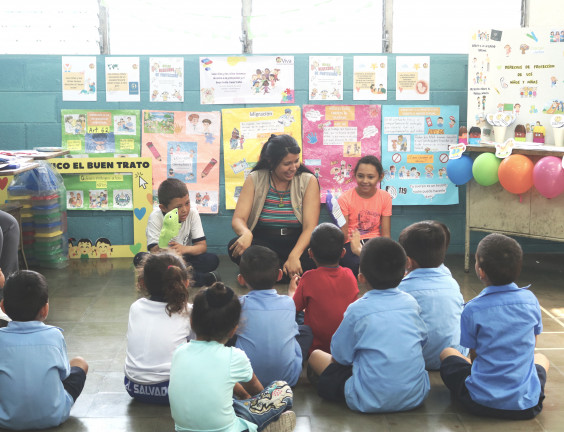
What motivates and inspires you in your work?
"I believe that every child has the right to a happy childhood and opportunities. Sadly, in my country, not all children have access to this. Many have to play the role of an adult from a very early age, either working, selling or taking care of their younger siblings, so being part of a positive change in their lives is something that inspires me.
I feel really happy when I see that one of the children from the project who was not studying now goes to school, has a birth certificate, or has improved their grades. I recently had the opportunity to see one of the children who had been an ambassador at the project. He was selling clothing with his mother in the street. When I spoke to them, they gave me the good news that he's in his first year at university. In the Viva Foundation we always say, 'Working for children is working for God'. I try to internalise this phrase and live it. It really motivates me because I believe that in the end, our work leaves its mark on children's lives."
What are the biggest challenges you face in your work?
"One of the biggest challenges I currently see in educational support is the lasting impact of COVID-19 on children's learning. The pandemic has left significant gaps. Various factors such as the economic situation, migration, and the current state of emergency* are also affecting children's support in education. We’re increasingly seeing 10-year-olds who struggle to read and write their own names. Improving their maths and language skills is a real challenge given the context they live in.
In a country like ours, there is a great deal of ignorance about children’s rights. Culturally, physical punishment is often seen as the best way to educate. In El Salvador, it's common to hear adults say, 'I am who I am thanks to how I was brought up,' referring to the belief that being hit with belts or objects helped correct negative behaviours."
What has been your proudest moment while working for Viva?
"It fills me with pride when a child speaks up about their rights and tells their parents, saying, 'Viva Foundation says I have rights, so you shouldn't treat me badly anymore.' Hearing that is incredibly gratifying. It’s also heartwarming to see children confidently teach others about their rights, spreading awareness about protection and showing trust in what they’ve learned.
I’m proud to see our children gaining more opportunities. Recently, I found out that one of the girls we supported at Tinneti Market might be traveling to the United States to compete in a karate tournament — she received a scholarship due to her exceptional performance in the sport. I could share so many more examples, like a boy from the central market whose mother didn't have time to enroll him in school. He hadn’t studied for two years in a row, but after we met frequently with his family, he’s now back in school and participating in our educational support programme."
What are your hopes for the children you work with?
"My hope is for the children to improve their school performance, develop dreams and goals and shift their mindset. I want them to know their rights, strengthen their self-esteem, build confidence and have more opportunities to grow and thrive."
*El Salvador's government declared a state of emergency in 2022 due to a significant increase in gang-related murders, and it has been in effect ever since. Although the murder rate has dropped considerably, authorities remain worried that the gangs might reorganise.
The state of emergency grants the police additional powers, resulting in a substantial increase in arrests, sometimes with minimal evidence. It also permits extended detention periods before a trial takes place. Additionally, many ordinary legal safeguards have been reduced or weakened; for instance, joint hearings involving more than 100 individuals are now common.
